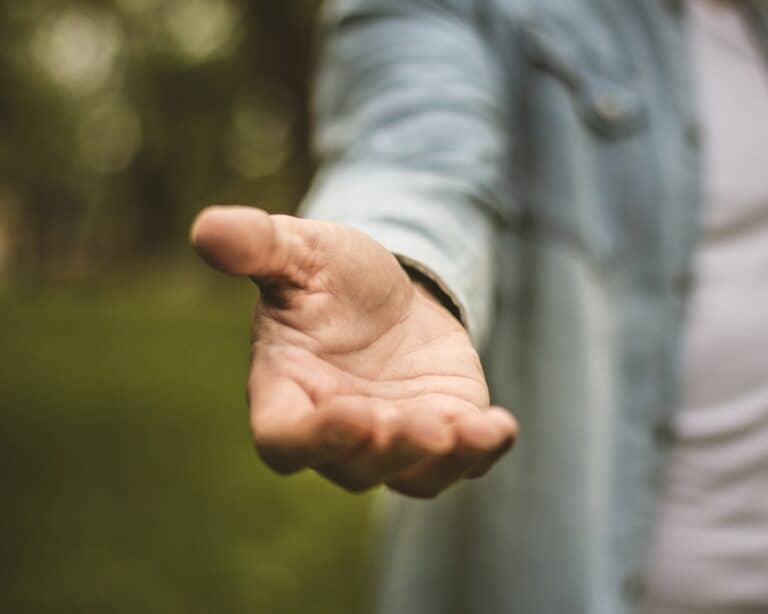Opioid use disorder (commonly referred to as opioid addiction) affects over 2.7 million people in the United States.[1] Opioid overdoses have accelerated significantly since the COVID-19 pandemic, primarily due to fentanyl, but any opioids can be deadly when abused. As a result, it is important for those struggling with opioid addiction to access effective and individualized treatment.
Ultimately, the best treatment for opioid use disorder is one that is tailored to meet your needs. What works for you may not work for the next person, so it is crucial that your needs are taken into consideration and that your treatment plan is uniquely designed for your situation and medical necessity.
For most people, treatment for opioid use disorder involves medication, behavioral therapy and counseling, and peer support.
Medications for Opioid Use Disorder
The U.S. Food and Drug Administration (FDA) has approved several medications for the treatment of opioid use disorder. All medications are intended to be used in combination with behavioral therapy and counseling–an approach known as medication-assisted treatment (MAT) MAT has been proven to decrease opioid use, criminal activity, and infectious disease transmission while increasing social functioning, treatment retention, and treatment completion.
Medications for the treatment of opioid addiction include:
Buprenorphine
Buprenorphine is a partial opioid agonist-antagonist that activates opioid receptors and blocks the euphoric effects of opioids. It is used to treat opioid withdrawal syndrome and alleviate drug cravings that persist after detoxification.
As one of the most commonly prescribed medications for opioid addiction, buprenorphine is sold in several different forms under different brand names. These include:
- Subutex (buprenorphine) – A daily medication taken by mouth to alleviate opioid withdrawal symptoms and cravings.
- Suboxone (buprenorphine/naloxone) – A daily medication taken by mouth to treat opioid dependence and addiction.
- Sublocade (buprenorphine extended-release suspension) – A monthly medication administered as a subcutaneous injection that delivers a sustained dose of buprenorphine to the bloodstream over the course of 28-30 days to treat opioid use disorder.
Naltrexone
Naltrexone is an opioid antagonist that is used to treat alcohol use disorder and opioid dependence. The drug works by stabilizing brain chemistry and reducing cravings for opioid drugs.
Naltrexone comes in two forms:
- Vivitrol – A monthly injection of naltrexone that alleviates cravings and prevents relapse.
- ReVia – A daily medication taken by mouth to alleviate cravings and prevent relapse.
Methadone
Methadone is a full opioid agonist that is used to replace regular opioids, thereby preventing withdrawal symptoms, alleviating cravings, and helping to treat opioid use disorder. Even though it is an opioid, it is prescribed in a controlled setting with only limited doses released at a time. It is also not as strong as many of the opioids that are abused, such as heroin or fentanyl, so it does not produce a high.

Get The Care You Need and Deserve
Woburn Addiction Treatment is a leader in the addiction treatment field, with proven success in facilitating long-term recovery. Our team of top clinical & medical experts specializes in treating addiction coupled with mental illness, ensuring that each person receives individualized care. Call us – we’re available 24/day, 7 days/week.
Behavioral Therapy and Counseling for Opioid Use Disorder
Medications are used to treat symptoms of opioid withdrawal and reduce the severity of cravings, but you can’t beat opioid addiction with medications alone. Addiction recovery involves treating the root cause of your addiction (such as trauma, PTSD, or mental health conditions), analyzing and understanding your behaviors and emotions, and developing healthy coping skills. This is accomplished using group, individual, and family therapy.
There are a variety of different therapies that may be used during opioid addiction treatment. These include:
- Cognitive behavioral therapy (CBT) – A type of talk therapy that helps identify and change maladaptive thought patterns that contribute to substance abuse and mental illness.
- Dialectical behavioral therapy (DBT) – A type of CBT talk therapy that uses mindfulness, acceptance, and other strategies to provide skills for managing emotions in a healthy way.
- Motivational Interviewing (MI) – A counseling method used to resolve ambivalent feelings about recovery and identify sources of motivation for staying sober.
- Psychodynamic therapy – A type of psychotherapy that aims to help patients identify underlying thoughts and feelings that lead to substance abuse and addiction.
Your treatment plan may also include topic-specific discussion groups specifically designed for issues such as divorce, trauma, relapse prevention, self-harm, family dynamics, gender-specific issues, and more.
Support Groups for Opioid Addiction Recovery
Opioid addiction recovery is a long-term, ongoing process, and one of the best ways to continue treating your addiction is to participate in a support group. There are several support groups designed to help people suffering from opioid use disorder. These include:
- Narcotics Anonymous (NA) – A 12-Step fellowship for people struggling with addiction to any drug, including opioids.
- Heroin Anonymous (HA) – A 12-Step fellowship for people overcoming heroin addiction.
- Pills Anonymous/Prescription Anonymous – 12-Step fellowships dedicated to people struggling with addiction to pills/prescription medications.
- Self-Management and Recovery Training (SMART) – A science-based, self-empowering support group that helps promote behavioral changes in people struggling with addiction.
- Secular Organizations for Sobriety (SOS) – A mutual self-help model that is not 12-Step or spirituality-based can help people struggling with any kind of substance addiction.
Participating in a support group is one of the best ways to ensure your sobriety after finishing treatment for opioid use disorder.
Find Individualized Treatment for Opioid Use Disorder Today
If you or someone you love has been suffering at the hands of an opioid abuse disorder of any severity, Woburn Addiction Treatment is available to help. Our comprehensive and highly individualized program of opioid rehab in Woburn, MA is unlike any other in the area.
Not only does our opioid rehab program have a completion rate 150 percent higher than the national average, but our team of experienced clinical professionals has developed an integrated program that focuses on 12-step immersion, intensive therapeutic intervention, a holistic approach to wellness, and thorough aftercare planning.
Don’t wait any longer to get the treatment you deserve. Call now to learn more about your opioid rehab options in Massachusetts.


